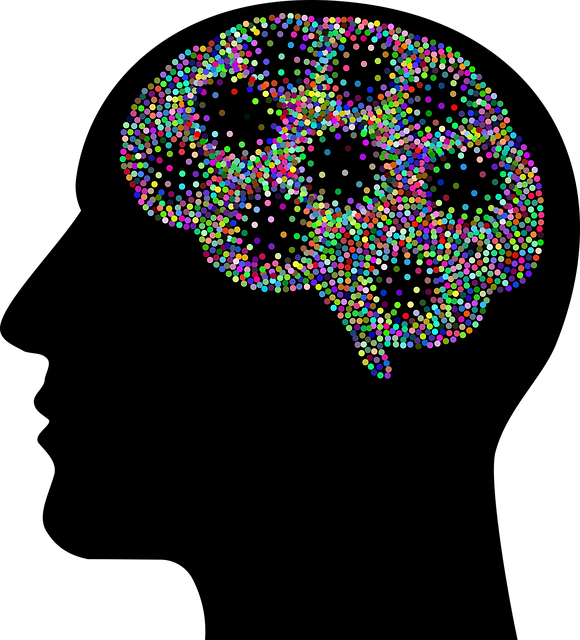The media's portrayal of mental illness significantly shapes societal perceptions, with accurate and compassionate depictions reducing stigma and encouraging support-seeking behaviors. In Denver, German-speaking therapy services are crucial resources for culturally sensitive care. By addressing negative media portrayals, these therapies empower individuals from German-speaking backgrounds to navigate their mental health journeys confidently, fostering inclusivity within the city's mental health landscape. Collaboration with professionals offering Denver German speaking therapy is vital for accurate representation in media, reducing stigma, and promoting understanding of diverse mental health experiences.
Mental illness representation in media plays a pivotal role in shaping public perception and understanding of mental health. This article delves into the profound impact of media portrayal, highlighting how it can either perpetuate stigma or foster awareness. We explore successful initiatives like Denver German Speaking Therapy, which bridges cultural gaps through accurate depictions. By examining the current state of media representation and implementing strategies for empathy, we advocate for more inclusive narratives. Community involvement is key; diverse voices ensure authentic storytelling that challenges stereotypes and promotes mental health literacy.
- Understanding the Impact of Media Portrayal on Mental Health Awareness
- The Current State: How Media Often Perpetuates Stigma Around Mental Illness
- Denver German Speaking Therapy: A Cultural Bridge to Enhanced Representation
- Strategies for Promoting Accurate and Empathic Mental Illness Depictions
- Community Involvement: Encouraging Diverse Voices in Media Narratives
Understanding the Impact of Media Portrayal on Mental Health Awareness

The media plays a significant role in shaping societal perceptions and beliefs about mental health. Accurate and compassionate representation can significantly impact public understanding and reduce stigma, while negative or stereotypical portrayals can perpetuate misconceptions and hinder support-seeking behaviors. Research has shown that the way mental illness is depicted in films, television shows, and news coverage influences attitudes towards individuals living with these conditions. For instance, a study by the National Alliance on Mental Illness (NAMI) found that media coverage often oversimplifies complex disorders, using dramatic or sensationalized language that can be harmful.
In Denver, German-speaking therapy services have emerged as valuable resources for those seeking support in their native language. These services cater to the unique needs of a diverse community, promoting emotional well-being through culturally sensitive practices. By challenging negative media portrayals and providing accessible self-care practices, trauma support services, and emotional well-being promotion techniques, individuals can navigate their mental health journeys with increased confidence and understanding, ultimately fostering a more supportive and inclusive society for all.
The Current State: How Media Often Perpetuates Stigma Around Mental Illness

In today’s digital age, media plays a significant role in shaping societal perceptions about mental health. While there has been progress in recent years, the current state of mental illness representation often perpetuates stigma and misinformation. Many media outlets still portray individuals with mental disorders as dangerous, weak, or even completely unpredictable, reinforcing negative stereotypes that can deter people from seeking help.
This is particularly concerning as accurate representation is crucial for fostering understanding and empathy. For instance, in the context of Denver German speaking therapy, cultural nuances often get lost when mental illness is depicted primarily through stereotypical angles. Media has the power to either perpetuate these limitations or challenge them by showcasing diverse narratives that emphasize resilience, recovery, and the effectiveness of therapy—including specific approaches like mood management, crisis intervention guidance, and resilience building.
Denver German Speaking Therapy: A Cultural Bridge to Enhanced Representation

Denver German Speaking Therapy offers a unique and culturally sensitive approach to addressing mental health concerns within the vibrant Denver community. By providing services in both German and English, this therapy center bridges the gap between diverse cultural backgrounds and accessible mental healthcare. Many individuals from German-speaking backgrounds may face challenges when seeking support due to language barriers or a lack of representation in mainstream media. This therapy centre caters specifically to these needs, ensuring that inner strength development and mindfulness meditation practices can be offered and received within a familiar linguistic and cultural context.
Furthermore, the center’s expertise in trauma support services is invaluable. They recognize the impact that cultural nuances and past traumatic experiences can have on mental well-being. By offering therapy tailored to individual needs, they foster an environment where clients feel understood and supported. This specialized approach encourages open dialogue and promotes effective healing, ultimately contributing to a more inclusive and diverse representation of mental illness in Denver’s media and society as a whole.
Strategies for Promoting Accurate and Empathic Mental Illness Depictions

In the pursuit of accurate and empathic mental illness representations in media, several strategies emerge as powerful tools. One key approach involves collaboration with mental health professionals, such as those offering German speaking therapy in Denver, to ensure factual accuracy and sensitive storytelling. This partnership can help dispel myths and stereotypes often associated with various mental health conditions. Additionally, including diverse narratives that reflect the experiences of different demographics can significantly contribute to reducing the stigma surrounding mental illness. By showcasing characters grappling with genuine challenges and portraying their journeys towards recovery, media platforms can foster understanding and empathy among viewers.
Furthermore, integrating mental illness depictions within broader narratives can humanize these issues. This strategy not only helps in Mental Illness Stigma Reduction Efforts but also promotes Burnout Prevention by encouraging self-care practices and open conversations about mental health. Encouraging characters to embrace Self-Care Routine Development for Better Mental Health can serve as a visual guide for audiences, demonstrating healthy coping mechanisms. Such representations can inspire viewers to prioritize their well-being and seek support when needed, ultimately fostering a more compassionate society.
Community Involvement: Encouraging Diverse Voices in Media Narratives

Incorporating diverse voices within media narratives is a powerful tool to challenge stereotypes and promote understanding of mental illness. Community involvement plays a pivotal role in this process, especially when drawing from underrepresented populations such as Denver’s German-speaking community. By inviting individuals with lived experiences to contribute their stories, media platforms can offer authentic representations that resonate with viewers on a deeper level. This approach fosters empathy and breaks down barriers by showcasing the humanity behind mental health struggles, ultimately encouraging support and compassion.
Furthermore, engaging the German-speaking community in these narratives allows for the exploration of unique cultural perspectives on mental well-being. Encouraging self-esteem improvement, confidence boosting, and resilience building within this demographic can lead to more inclusive discussions that transcend language barriers. Denver German speaking therapy initiatives can serve as valuable resources, providing insights into how diverse communities navigate mental health challenges, and ensuring media representations reflect the richness of these experiences.
Mental illness representation in media plays a pivotal role in shaping public perception. By challenging stigmatizing narratives and embracing diverse voices, we can foster understanding and empathy. Denver German Speaking Therapy serves as a beacon, demonstrating the importance of cultural sensitivity in accurate depiction. Through strategic involvement of community members with lived experiences, media can transform its role from perpetuating stigma to enhancing mental health awareness. This collective effort is crucial in creating a more inclusive and supportive society.














